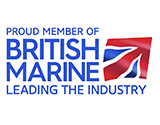- Passage planning including consideration of the capability of the vessel, navigation, provisioning, weather, ports of refuge, tidal heights and streams, documentation and strategy.
- Preparation for sea including safety equipment, stowage, crew briefing, watchdelegation of responsibility, fuel and engine checks.
- Day and Night pilotage, including plans, use of soundings, transits, clearing bearings, buoyage, light characteristics, port or harbour regulations, and tidal considerations.
- Passage-making including ordanisation and direction of the crew, deckwork, domestic duties, navigational disciplines, monitoring meteorological trends, crew welfare and appropriate use of electronic aids to navigation.
- Radar and its use as an aid to navigation, pilotage, collision risk assessment and collision avoidance.
- Boat Handling including control in a confined space, avoidance of excessive use of power, berthing and unberthing operations in various conditions of wind and tide. Additionally, for twin-engined craft, berthing and unberthing in simple situations using just one engine only with appropriate use of shore lines.
- Adverse weather conditions including preparation for heavy weather, handing in strong winds and conduct in restricted visibility.
- Emergency situations including MAYDAY procedures, man overboard recovery, helicopter and lifeboat rescues and abandoning to a liferaft.
(Note: For a complete and up-to-date syllabus refer to the relevant page in your RYA Motor Cruising Syllabus and Log).


